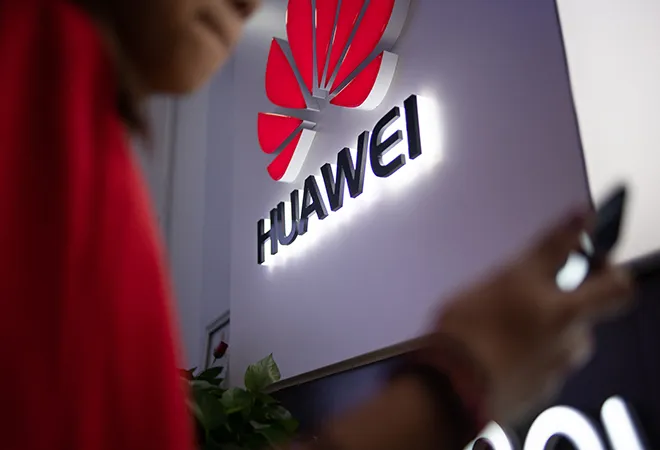In a dramatic reversal of its
decision in January allowing Huawei to have a limited role in its telecommunications network, the
U.K. has finally decided to ban the Chinese company. This entails banning U.K. mobile providers from buying new Huawei 5G equipment after the end of this year as well as removing all of Huawei’s 5G kit from their networks by 2027. The U.K.’s Secretary of State for Digital, Culture, Media and Sport, Oliver Dowden, put the blame on
U.S. sanctions imposed on Huawei in May. “Given the uncertainty this creates around Huawei’s supply chain, the U.K. can no longer be confident it will be able to guarantee the security of future Huawei 5G equipment,” he said.
U.S. Secretary of State Mike Pompeo praised the U.K.’s decision and urged other like-minded countries to “push back” against Beijing’s actions. For its part,
China “strongly opposed” the U.K.’s “groundless” ban and warned that it would “take measures to safeguard” the “legitimate interests” of Chinese companies as “any decisions and actions must come at a cost”. The British government has been forthright about the delay in 5G’s roll-out as a consequence of its policy shift and the costs of its decision. At a time when London is looking to engage with major global powers in a post-Brexit environment to enhance its trade ties, this decision, which is likely to alienate China, will come with some serious strategic costs as well.
A domino effect across Europe
The U.S.’s imposition of sanctions on Huawei in May, which disrupted the company’s global supply of semiconductors, altered the cost calculus for the U.K. The U.K. government had to go in for another round of security review which resulted in the National Security Council’s decision to finally phase off Huawei’s involvement in the country’s 5G network. But the U.S.-U.K. relationship was also facing a moment of reckoning after the U.K.’s January decision to allow Huawei. At a time when the U.S.-China relationship is entering a phase of Cold War 2.0, the Trump administration had made it clear that the U.K.’s “special relationship” with the U.S. was under the scanner. Not only would their security and intelligence ties have been in jeopardy but crucial trade negotiations would have been hampered too. For the Trump administration, the U.K.’s change of stance is a major diplomatic win as it might also convince fence sitters to make a final decision.
For Huawei, a domino effect across Europe might pose a serious challenge given that almost a quarter of its sales come from the European market. France also decided to limit the use of Huawei’s 5G kit by issuing limited term licences. This is widely seen as a de facto ban on the Chinese company though the French government has not said it in so many words. Germany too is reducing its reliance on Huawei as the mood against China has soured across Europe. After years of kowtowing to the Chinese, the European Union is becoming more explicit than ever in challenging China. The issues range from China’s initial mishandling of COVID-19 and Beijing’s disinformation campaign in Europe to the new national security law in Hong Kong. China is viewed as a “systemic rival” that is hell bent on challenging the extant global order with all its concomitant treaties, norms and institutions. And Huawei is the latest flashpoint with individual countries shunning the company and the European Commission warning in a recent report that “most Member States have not yet established or communicated clear plans to effectively address existing situations of dependency on high-risk suppliers and prevent future dependencies.”
Awaiting India’s response
So what once looked like a battle which the U.S. was waging on its own has suddenly been joined by a number of other players. The Indian response is being closely watched. Last year, India had allowed Huawei to participate in 5G trials which could not happen because of the disruptions caused by the pandemic. Today, India-China ties have altered due to the border crisis and Chinese insensitivity to Indian concerns. New Delhi is toughening its posture across domains and it looks rather unlikely that Huawei would get to participate in the 5G network roll-out in India. India is signalling that it is willing to bear economic and technological costs if it means limiting Chinese involvement in critical infrastructure. But what would not be lost on Beijing is that losing such a large market might be a devastating blow to Huawei as well. It is becoming increasingly clear that the decision on Huawei is not merely a technological or economic decision but a fundamentally political decision for most countries. China’s decision to weaponise trade and technology ties might now come back to haunt it as other nations begin to pay back in the same coin.
This commentary originally appeared in The Hindu.
The views expressed above belong to the author(s). ORF research and analyses now available on Telegram! Click here to access our curated content — blogs, longforms and interviews.




 PREV
PREV


